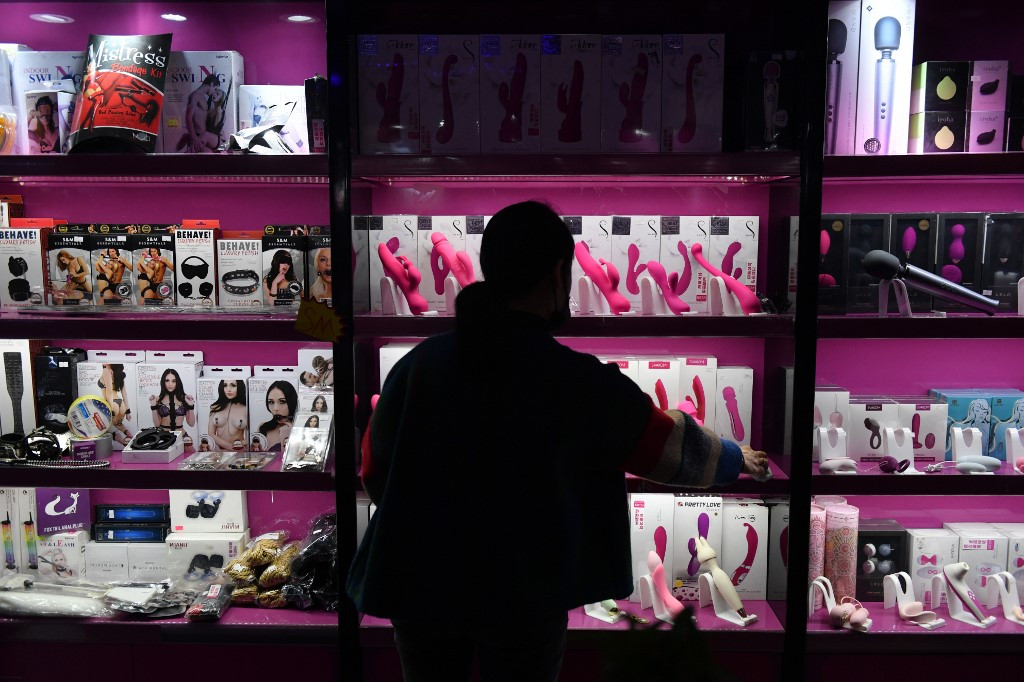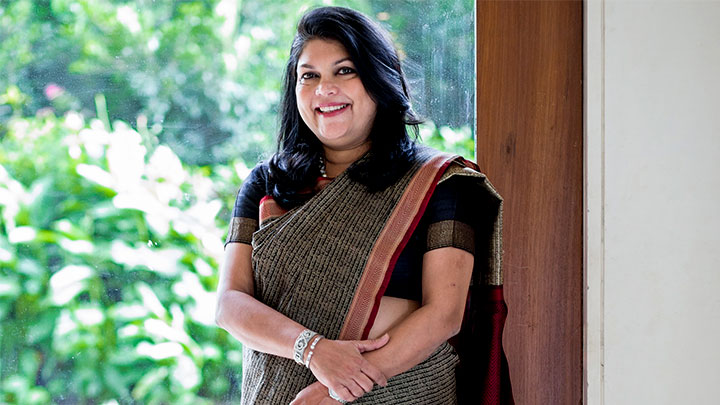By Anuka Bachawat
“There was one problem. My wrist. When I got over the initial awkwardness of being naked just for my own pleasure, I found that a vibrator was not all you needed to achieve pleasure, you also needed another thing not as spoken about as this device – the capability to hold and move it, and the finger strength and motor ability that requires”, says the anonymous writer who suffers from chronic arthritis, as she chronicles her experience of using a vibrator for the Revival Disability Magazine.
The writer goes on to voice her apprehensions about using a vibrator as a disabled woman. Strain, she says, could mean “something as simple as bending it too much to put a vibrator in me. I could get a sprain and terrible swelling. I could dislocate my wrist. I could break my fingers.” This vivid account pushes us to ask: who are sex-toys made for and which bodies are overlooked when they are designed?
Growing sex education and intimate well-being awareness campaigns on social media, pandemic isolation, and a handful of young start-ups have ensured that the conversation around sex toys remains at an audible decibel. However, sex-toys designed for trans individuals, gender non-conforming folks and persons with disabilities, remains conspicuously absent from both the sex-toy market and discourse in India. Despite the fast-paced evolution of sex tech, the sex toys available in the Indian market are not designed and marketed in gender and disability inclusive ways. This unlike countries like the UK, where disabilities charity Enhance The UK is collaborating with sex-toy brand Rocks-Off to create toys for users with physical disabilities. Similarly, Hot Octopuss works with disabled, trans, queer and non-binary sex bloggers to make pleasure universally accessible. By contrast, in India, the conversation about sex toys and their potential to serve as instruments of a social justice movement, is relatively stilted. This is because India barely acknowledges the presence of the sex-toy industry let alone allowing them to serve as catalysts of an inclusive sexual revolution. The stigma around sex toys runs deep and is deeply embedded in the legal framework.
Can Sex Toys Be Sold In India?
The sale of sex toys in the country is a legal grey area because there are no express prohibitions against or guidelines for their manufacture, sale or purchase. India’s first legal sexual wellness chain Kamakart has stores Goa, Chennai, Bengaluru and Kochi. However, while the store has a legal certificate of recognition, it does not have a trade license.
Given such constraints on obtaining trade-licenses and their ambiguous legal status, there are very few sex toy stores in India and the market is largely online. Thatspersonal, IMBesharam, Lovetreats, ItspleaZure, Shycart, Privy Pleasures, MyMuse and Kinkpin are the main go-to sellers of sex toys in the country.
India’s Sex-Toy Economy : When Size Matters
As of 2018, the global sex toy market was worth $22 billion, of which India’s market size was worth $227.8 billion. The Indian sexual wellness industry was set to grow to Rs. 8,700 crore ($1.4 billion) by 2020.
Despite the sheer girth of the market, a large portion of India’s sex toys are imported from China (which manufactures close to 70 per cent of the sex toys in the world, according to a Mint report). Further, a YourStory report indicates a dearth of funding despite the industry’s promising growth projections.
What Does The Customer Base Look Like?
The break-up of business of ventures like ThatsPersonal and IMBesharam shows that customers from tier-II and tier-III cities account for a considerable portion of their revenue. ThatsPersonal’s revenue from tier-II and III cities stands at 52 per cent while these cities account for 46 per cent of IMBesharam’s revenues.
ThePrint traced the gendered sex toy consumption patterns to note that the initially the market was dominated by male customers. Divya Chauhan’s ItspleaZure saw men accounting for nearly 90 per cent of the transactions but is simultaneously witnessing an increased demand for women. However, purchases made by men may not necessarily imply that these sex toys are bought for the men themselves. This is because men are buying sex toys for women not in tier I and II cities but in tier III and IV cities.
These demographics do not reflect the disabilities, marital statuses, sexual orientations and gender identities of the customers. Yet visiting these websites provides a sense of who these sex-toys are targeted at. Nu, founder of Revival Disability Magazine, points out that IMBesharam’s brand ambassador is the able-bodied and conventionally femme Sunny Leone. Disabled and queer, trans, gender non-conforming individuals are not considered in the process of sex-toy marketing and advertising. Nu explains that “there is no template or guide to disabled pleasure nor are there any disabled sexual wellness role models”. They lament that “the ideal user of sex-toys is typically able-bodied and straight”. Therefore the existing sex-toy marketing strategies restrict inclusive access to sex toys.
How Do Government Agencies Use The Law To Crack-Down On Sex Toys?
In addition to the restrictions to access imposed by the sex-toy industry’s internalized biases, the government poses its own obstacles too. The Customs Office often uses the obscenity provision i.e. Section 292 of the Indian Penal Code impede the sale of sex toys. In other words, when sex toys are packaged and shipped to the buyer, the package is sometimes intercepted by the Customs Office at the port of delivery and kept with them for inspection. After inspection, the Customs Office may at its discretion, summon the vendor and buyer to court. This is done to ascertain the purpose of the product and whether it is obscene or against public morality under Section 292 of the Indian Penal Code. In 2011, in the case of Kavita Phumbhra v. Commissioner of Customs, certain goods (sex toys/adult games) that were imported by the appellant for being further sold to adults only, were confiscated by the Additional Commissioner of Customs by applying charges of obscenity under Section 292(1) of the IPC. However, the Calcutta High Court held that the order of confiscation by Customs was not illegal as given the morals of present day society, the goods in question could be called obscene as to render them prohibited articles. In addition to this, Section 377 IPC could have served as a potential ground for sex toys being illegal as they could facilitate “carnal intercourse against the order of nature” i.e. sexual intercourse that is not solely for reproduction. But after its reading down in 2018 in Navtej Singh Johar v. UoI, Section 377 IPC can no longer serve as an obstacle to the sale of sex toys.
Despite the Calcutta High Court decision and the reading of down of Section 377, the absence of clear guidelines and legislation, creates much ambiguity with respect to the legality of sex toys. Although some judicial decisions enable the sale of sex toys, there are other legal obstacles to it. For instance, in 2018 the Indian patent office had invoked Section 292 IPC and Section 3 (B) of the Patents Act (contrary to morality) to reject a Canadian firm’s plea to patent a vibrator. Further, Section 67 of the IT Act extends the obscenity Section 292 to the internet. Given the immoral and illegal connotations attached to the sale of sex toys, there has been a boom in the indirect marketing of sex toys. Vibrators sold as massagers are available in abundance on Amazon and Nykaa. This sanitized marketing allows these products to fly under the radar. In other words, the legal loophole seems to be that sex toys can be sold as long as they do not violate an arbitrary conception of obscenity.
What Is The Law In Other Countries?
Netherlands: Amsterdam is known for its Red Light District where the sex work industry functions legally and without moral undertones. The sex shops in the area are similarly legal and the only prohibition exists with respect to the sale of sex toys to minors.
Thailand: Despite its thriving sex industry, the sale of sex toys continues to be illegal in Thailand. This is because they fall within the category of obscene goods in the country’s list of prohibited items. The penalty for anyone caught peddling, buying, or possessing sex toys is up to three years jail time or a fine of up to 60,000 Thai baht ($2,000), or both. The government has kept the law banning sex toys intact as they are seen as being “against the view of Thai society”.
Australia: The sex toy industry is legal in Australia and in 2018 ISO (International Standardisation Authority) safety standards were made applicable to sexual wellness products.
UK: The trade of sex toys is legal in the UK and one needs a license from a local authority to run a sex shop i.e. any premises selling sex toys, books or videos.
USA: The legal position on sex toys is varied across different states and counties. For example, the sale and ownership of sex toys is illegal in Alabama except when purchased for medical reasons. The Obscene Device Law in Texas illegalizes the possession of more than six dildos. Similarly, New York state’s highest court ruled in 2017 that it could curb the number of sex shops, reversing a 2015 decision.
Therefore, it is evident from the prevailing laws banning sex toys in countries like India, Thailand and USA, that the basis for the illegality lies in their perceived obscenity. On the other hand, the trade of sex toys in the UK, Australia and Netherlands is not associated with obscenity and public morality.
What Does The Illegality Of Sex Toys Say About Approaches To Sexuality & Sexual Health?
Does the ban on sex toys have a correlation with reductions in sex crimes, human trafficking and the safety of marginalized genders? Or is it an arbitrary restriction that violates the constitutional rights to free trade and individual sexual autonomy? The sex-toy industry as it exists in India cannot expect to see material growth unless it is acknowledged by the government, instead of being banished to the realm of half-visibility and obscenity. The legalization of sex-toys is important for the growth of both the market as well as inclusive sexual awareness movements. The legalization of the sex-toys industry allow more people to invest in start-ups and facilitate manufacturers’ access to government support. This increased funding accompanied by increased access to sex tech, is likely to enable the development of trans, queer, non-binary and disability friendly sex-toys. Therefore, increasing access to sexual pleasure is key to inclusively de-stigmatizing sex.




